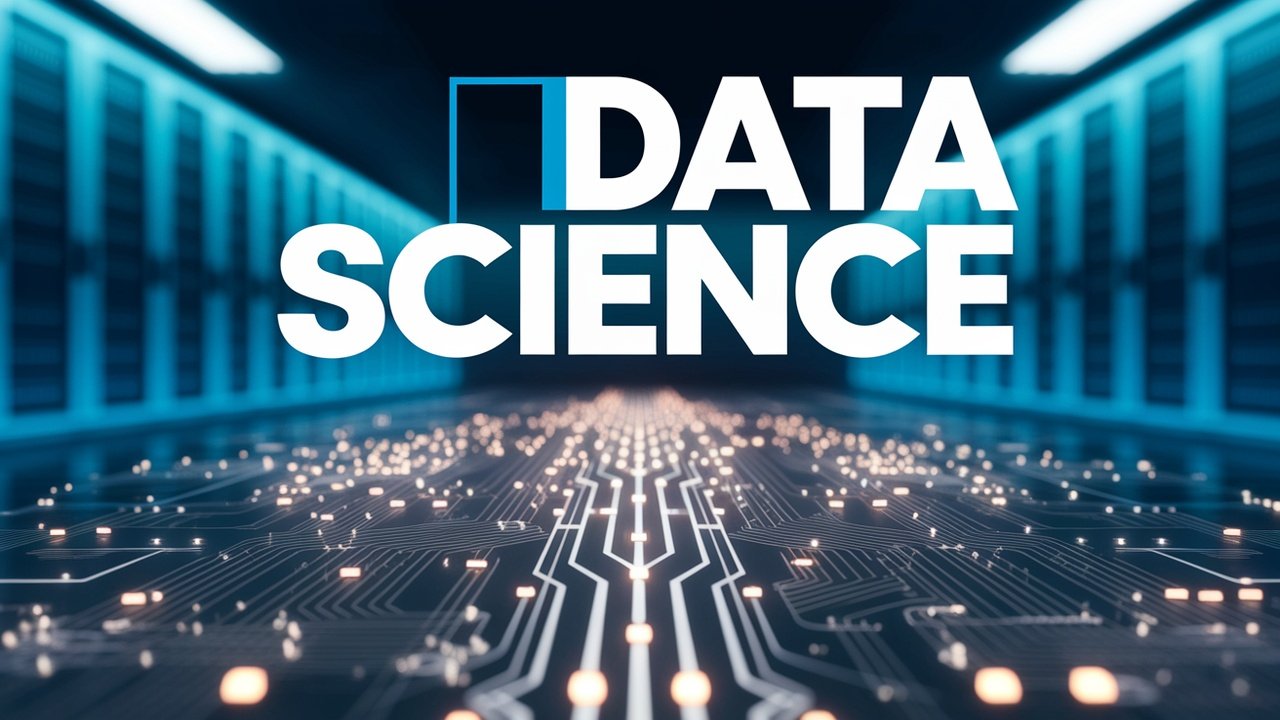Big Data: Unlocking the Power of Massive Information in the Digital Age

Introduction
In today’s interconnected world, data has become a vital asset for businesses, governments, and individuals. The rise of digital technologies, social media, e-commerce, and IoT (Internet of Things) has led to an explosion of data generation. This vast amount of structured and unstructured information is known as Big Data.
Companies across various industries leverage Data to gain insights, optimize operations, and drive innovation. From predicting consumer behavior to enhancing medical research, Big Data is shaping the future of decision-making and problem-solving.
In this article, we will explore what Data is, its characteristics, applications, tools, challenges, and future trends that will redefine how we interact with data in the coming years.
Understanding Big Data
Big Data refers to extremely large and complex datasets that traditional data processing tools cannot handle effectively. It involves collecting, storing, and analyzing massive amounts of information to extract valuable insights.
The Five Vs of Big Data
Big Data is typically defined by five key characteristics:
- Volume – The sheer size of data generated every second from sources like social media, financial transactions, and IoT devices.
- Velocity – The speed at which data is created, processed, and analyzed in real-time.
- Variety – Different data types, including structured (databases), semi-structured (JSON, XML), and unstructured (videos, images, emails).
- Veracity – The accuracy and reliability of data, which can be affected by inconsistencies and biases.
- Value – The ability to derive actionable insights that drive business and technological innovation.
Applications of Big Data Across Industries
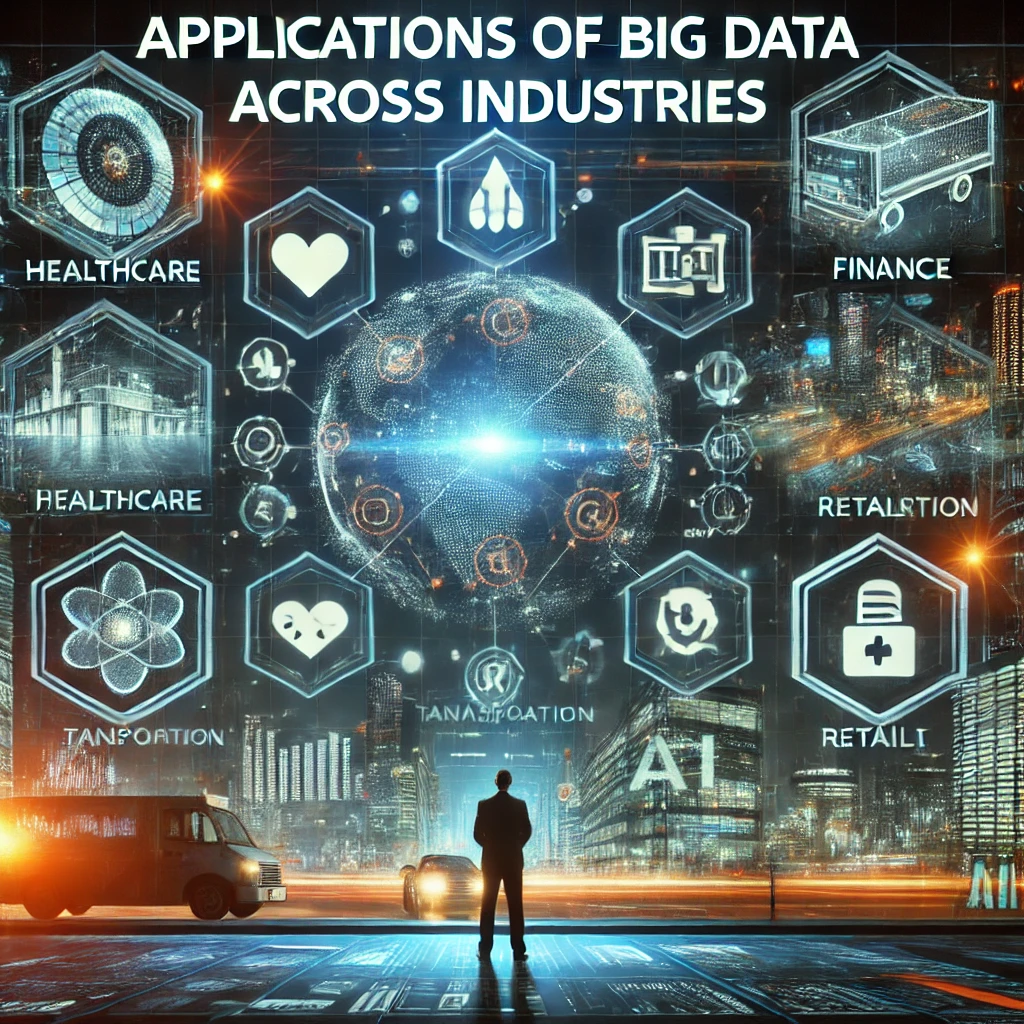
Big Data is revolutionizing multiple industries by enabling more accurate predictions, personalized experiences, and operational efficiencies. Here are some of the most significant applications:
1. Healthcare and Medical Research
- Predictive Analytics: AI-powered models analyze patient data to predict disease outbreaks and potential health risks.
- Personalized Medicine: Data allows for tailored treatments based on individual genetic profiles.
- Drug Discovery: AI and machine learning help researchers analyze vast datasets to discover new drugs faster.
2. Finance and Banking
- Fraud Detection: Machine learning algorithms analyze transaction patterns to detect fraudulent activities.
- Risk Management: Financial institutions use Big Data to assess risks and improve investment strategies.
- Customer Insights: Banks personalize services by analyzing customer spending behaviors.
3. Retail and E-Commerce
- Recommendation Engines: Companies like Amazon and Netflix use Data to offer personalized product and content recommendations.
- Dynamic Pricing: E-commerce platforms adjust prices based on demand, trends, and competitor pricing.
- Customer Sentiment Analysis: Brands analyze online reviews and social media mentions to understand consumer preferences.
4. Smart Cities and Transportation
- Traffic Optimization: Real-time data from GPS and sensors help reduce congestion and improve traffic flow.
- Public Safety: Law enforcement agencies use Big Data to predict and prevent crime.
- Energy Management: Smart grids optimize electricity distribution and consumption.
5. Manufacturing and Supply Chain
- Predictive Maintenance: IoT sensors collect machine data to prevent equipment failures.
- Supply Chain Optimization: Companies analyze logistics data to enhance inventory management and reduce costs.
- Quality Control: AI-powered image recognition detects manufacturing defects in real time.
Big Data Technologies and Tools
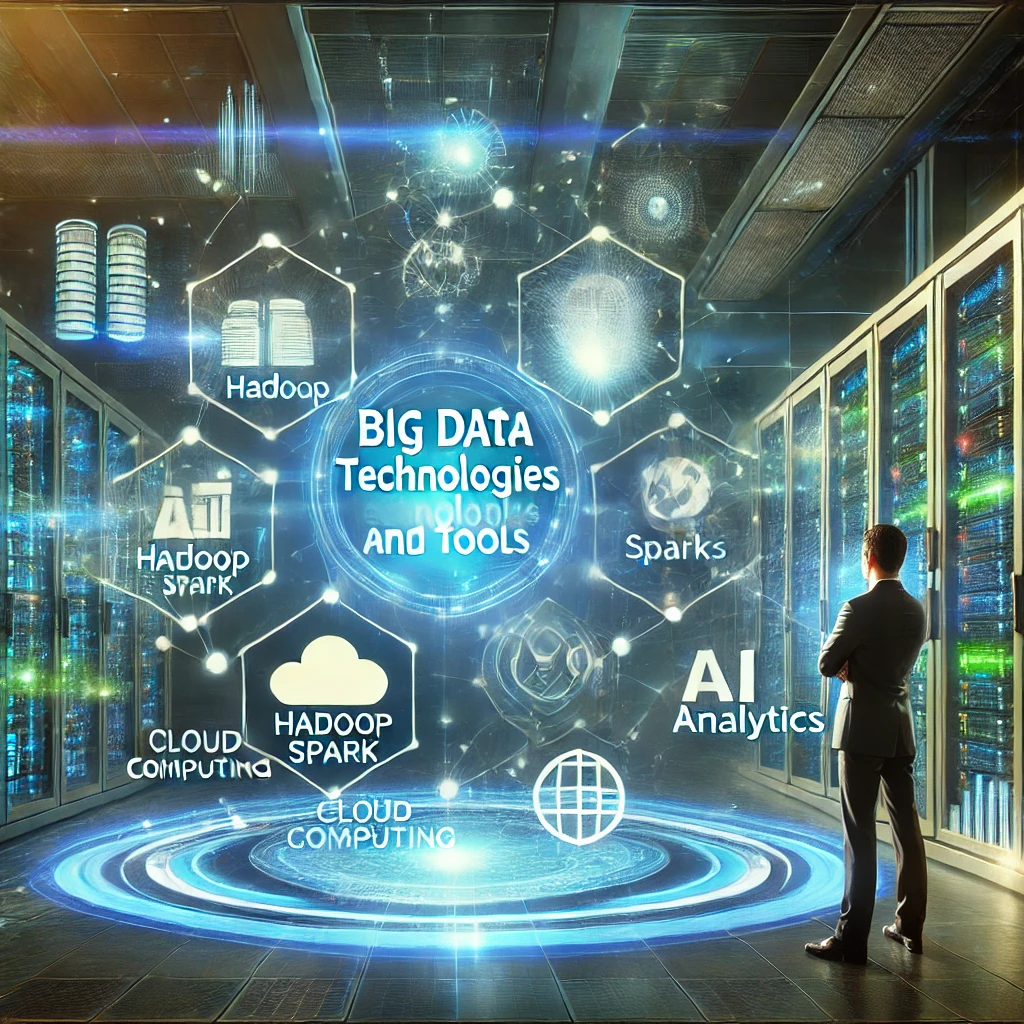
To process and analyze massive datasets efficiently, businesses use a combination of storage, processing, and analytics tools.
1. Data Storage and Management
- Hadoop: An open-source framework for storing and processing large datasets.
- Apache Spark: A faster alternative to Hadoop for big data processing.
- Cloud Storage: Services like AWS, Google Cloud, and Microsoft Azure provide scalable data storage solutions.
2. Data Processing and Analytics
- SQL and NoSQL Databases: Traditional relational databases (MySQL, PostgreSQL) and NoSQL solutions (MongoDB, Cassandra) handle structured and unstructured data.
- Data Lakes: Platforms like Amazon S3 store vast amounts of raw data for future analysis.
- AI and Machine Learning: TensorFlow and PyTorch enable advanced data-driven decision-making.
3. Data Visualization
- Tableau: A popular tool for visualizing complex data.
- Power BI: A Microsoft analytics tool for business intelligence.
- Google Data Studio: A free platform for creating interactive dashboards.
Challenges of Big Data
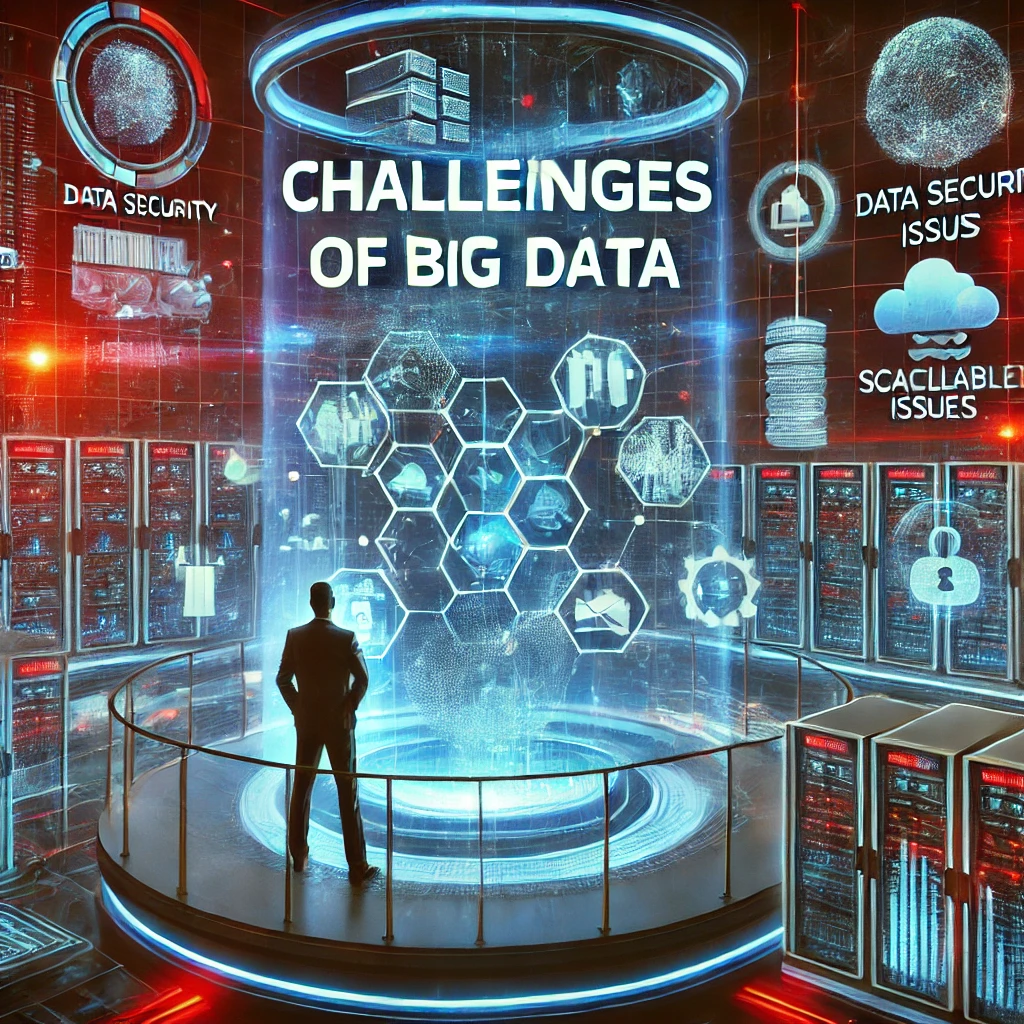
While Big Data offers immense potential, it comes with several challenges that organizations must address:
1. Data Privacy and Security
With growing concerns about data breaches and misuse, organizations must implement strict security protocols and comply with regulations like GDPR and CCPA.
2. Data Quality and Accuracy
Inconsistent and inaccurate data can lead to misleading insights. Organizations must ensure data cleaning and validation processes.
3. Infrastructure and Scalability
Managing and processing petabytes of data requires robust infrastructure, which can be costly for smaller businesses.
4. Skills Gap
The demand for data scientists, analysts, and engineers exceeds supply, making it difficult for businesses to find skilled professionals.
5. Ethical Considerations
Bias in AI algorithms and unethical data collection practices raise concerns about fairness and accountability in decision-making.
The Future of Big Data
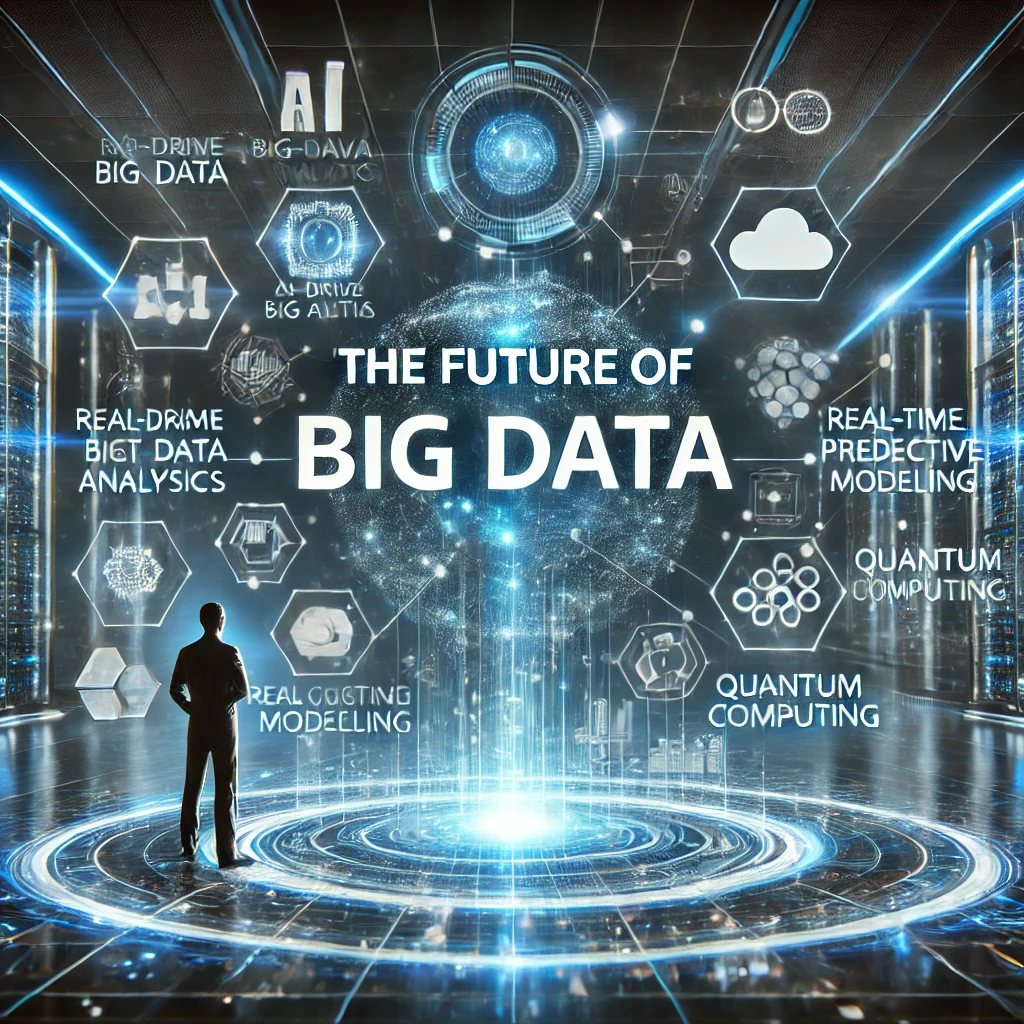
The future of Big Data is promising, with new advancements set to reshape industries and society. Here are some emerging trends:
1. AI-Driven Big Data Analytics
Machine learning and AI will automate data processing, improving accuracy and efficiency in extracting insights.
2. Real-Time Big Data Processing
Advancements in edge computing and 5G will enable instant data processing for applications like autonomous vehicles and smart factories.
3. Blockchain and Data Security
Blockchain technology will enhance data security and transparency by providing decentralized data storage solutions.
4. Data as a Service (DaaS)
More companies will offer data insights as a service, allowing businesses to leverage external datasets without infrastructure investments.
5. Quantum Computing and Big Data
Quantum computing will revolutionize data analysis, solving complex problems that traditional computers cannot handle efficiently.
Conclusion
Big Data has become a crucial asset for businesses, researchers, and governments, driving innovation across various sectors. As technology continues to evolve, the ability to collect, process, and analyze massive datasets will only improve, leading to smarter decision-making and groundbreaking discoveries.
However, addressing challenges such as data privacy, security, and ethical concerns will be essential in ensuring that Big Data benefits society as a whole. Organizations that effectively harness the power of Big Data will gain a competitive edge in the digital economy, making data-driven insights the foundation of future success.






